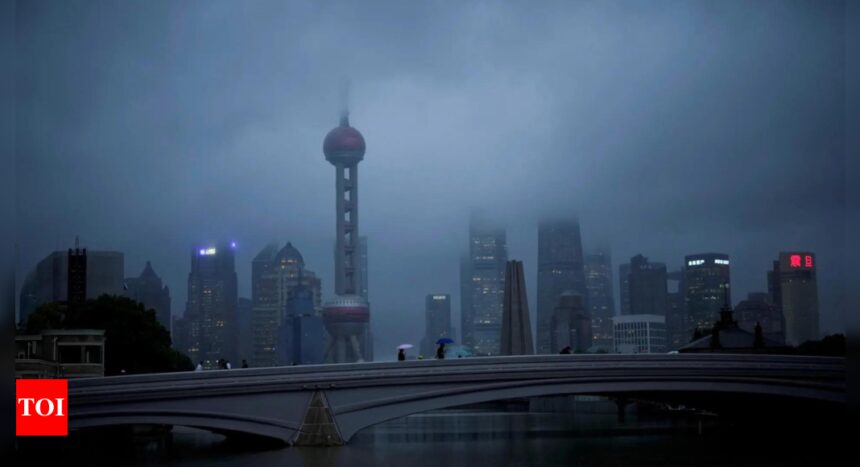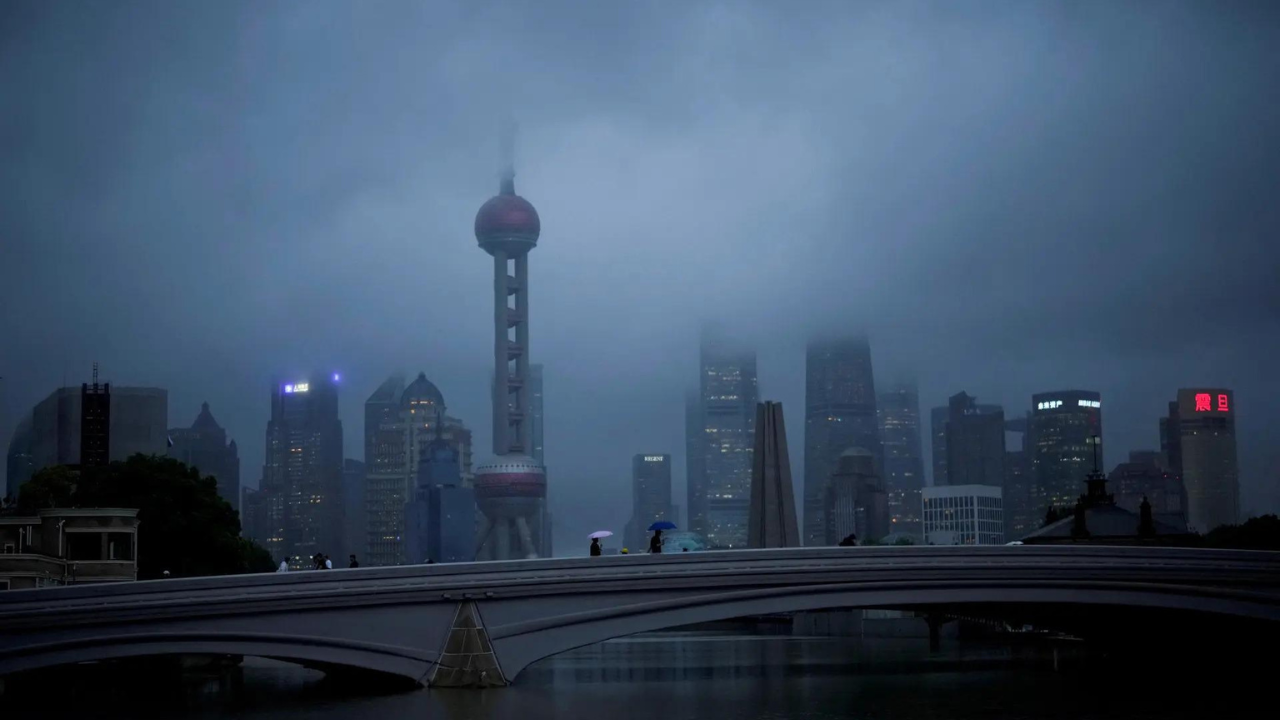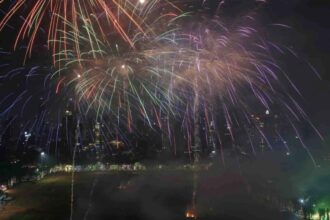The strongest typhoon in more than seven decades has struck China’s financial capital, bringing gale-force winds and heavy rain to the eastern seaboard and disrupting holidaymakers at the start of a days-long national festival.
Typhoon Bebinca — known as Beibijia in China — crossed the coast in the Yangtze River Delta region at around 7:30 a.m. local time on Monday, according to reports from state media.The storm is expected to dump rain across the Jiangsu, Zhejiang and Anhui provinces as it moves inland and weakens.
Shanghai, a mega-city of 25 million people, initiated a top-level emergency response on Sunday, suspending railways, closing ports, bridges and highways. All flights in and out of the city’s two airports were canceled in the evening, according to the airport operator.
Bebinca is the second storm to hit China in a matter of weeks, after Super Typhoon Yagi struck Hainan island in the nation’s south, killing people and causing widespread damage. The system then moved into northern Vietnam and Thailand, flooding households and swamping infrastructure.
Hundreds of thousands of people in Shanghai and other coastal cities were evacuated as Bebinca approached, and the travel plans of millions were disrupted at the start of the mid-autumn festival. Strong gale force winds up to 42 meters per second howled through Shanghai on Monday morning, state media said.
The typhoon will likely push a 1 to 2 meter storm surge into the Yangtze River, which will have its worst impact on the north side of the city, Adam Douty, a meteorologist at AccuWeather Inc, said in an interview.
The airport at Hangzhou, a city of about 13 million and home to Alibaba Group Holding Ltd, canceled more than one hundred flights, state media reported. The city is about 175 kilometers (109 miles) south west of Shanghai.
Typhoon Bebinca had maximum sustained winds of 65 knots (120 kilometers) per hour before making landfall, according to the Joint Typhoon Warning Center. That made it equivalent to a Category 1 hurricane on the five-step Saffir-Simpson scale. It’s the strongest storm to hit Shanghai since 1949, China Central Television reported.
High-speed rail services have been halted across the Yangtze Delta. Zhoushan, home to some of China’s largest oil storage tanks and refineries, warned people to stay indoors as rain and strong winds began lashing the city on Sunday afternoon.
Typhoon Bebinca — known as Beibijia in China — crossed the coast in the Yangtze River Delta region at around 7:30 a.m. local time on Monday, according to reports from state media.The storm is expected to dump rain across the Jiangsu, Zhejiang and Anhui provinces as it moves inland and weakens.
Shanghai, a mega-city of 25 million people, initiated a top-level emergency response on Sunday, suspending railways, closing ports, bridges and highways. All flights in and out of the city’s two airports were canceled in the evening, according to the airport operator.
Bebinca is the second storm to hit China in a matter of weeks, after Super Typhoon Yagi struck Hainan island in the nation’s south, killing people and causing widespread damage. The system then moved into northern Vietnam and Thailand, flooding households and swamping infrastructure.
Hundreds of thousands of people in Shanghai and other coastal cities were evacuated as Bebinca approached, and the travel plans of millions were disrupted at the start of the mid-autumn festival. Strong gale force winds up to 42 meters per second howled through Shanghai on Monday morning, state media said.
The typhoon will likely push a 1 to 2 meter storm surge into the Yangtze River, which will have its worst impact on the north side of the city, Adam Douty, a meteorologist at AccuWeather Inc, said in an interview.
The airport at Hangzhou, a city of about 13 million and home to Alibaba Group Holding Ltd, canceled more than one hundred flights, state media reported. The city is about 175 kilometers (109 miles) south west of Shanghai.
Typhoon Bebinca had maximum sustained winds of 65 knots (120 kilometers) per hour before making landfall, according to the Joint Typhoon Warning Center. That made it equivalent to a Category 1 hurricane on the five-step Saffir-Simpson scale. It’s the strongest storm to hit Shanghai since 1949, China Central Television reported.
High-speed rail services have been halted across the Yangtze Delta. Zhoushan, home to some of China’s largest oil storage tanks and refineries, warned people to stay indoors as rain and strong winds began lashing the city on Sunday afternoon.
Source : Times of India









